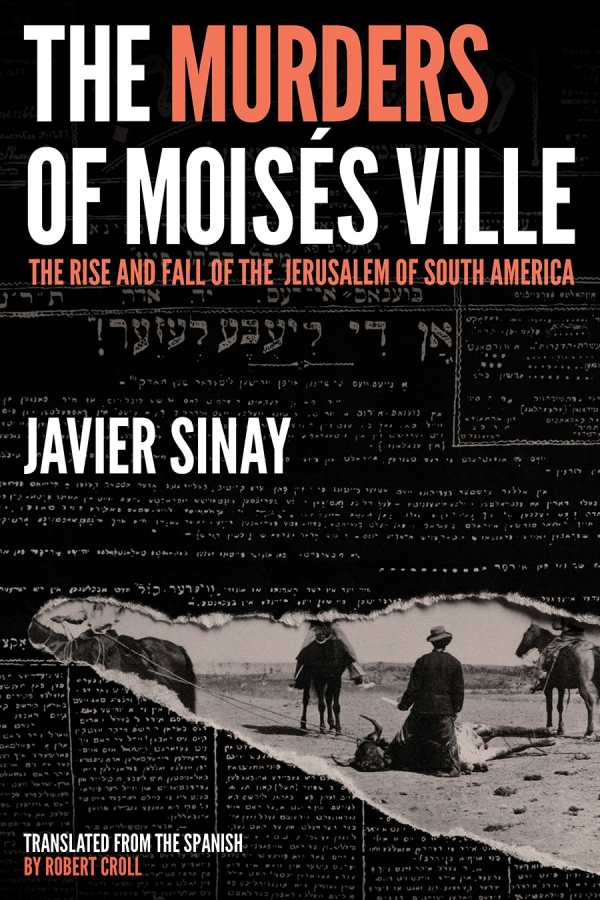The Murders of Moisés Ville
The Rise and Fall of the Jerusalem of South America
- 2022 INDIES Finalist
- Finalist, Multicultural (Adult Nonfiction)
The Murders of Moisés Ville covers gruesome murders in a fledgling Jewish community in late-nineteenth-century Argentina. Alongside its details of the crimes, the book chronicles Javier Sinay’s research experiences into them in South America.
When Sinay received an article written by his great grandfather in 1947, recounting an 1889 incident in which a gaucho murdered Jewish settlers who prevented him from claiming a bride, he was introduced to the history of Moisés Ville itself. The settlement was founded by Jews who fled the oppression of Tsarist Russia. The newcomers dealt with poverty, hunger, and consistent violence in their new land, though. While the fight with the gaucho was the first murder of settlers by locals, more attacks followed. Subsequent crimes included the massacre of a Jewish family in their home during a robbery, and the killings of young men who were looking for work outside of the village.
Drawing on what he learned in Argentina, Sinay reports on recent crimes as well, including a terrorist bombing of a Jewish archive in Buenos Aires the 1990s, and a string of pet poisonings that took place in Moisés Ville. The combination of the past with the present is consistent throughout the book, in which Sinay is seen interviewing the descendants of early settlers, searching for limited records, studying his own family history in Argentina, and taking Yiddish classes to better understand his great grandfather’s writings. His exploration of his family’s history makes for an empathetic narration.
In contemporary Moisés Ville, the crimes against the early Jewish population are often forgotten. Thus, this work of historical reportage helps to keep the victims’ memories alive. The Murders of Moisés Ville sheds light on an undercovered portion of Jewish history.
Reviewed by
Jeff Fleischer
Disclosure: This article is not an endorsement, but a review. The publisher of this book provided free copies of the book to have their book reviewed by a professional reviewer. No fee was paid by the publisher for this review. Foreword Reviews only recommends books that we love. Foreword Magazine, Inc. is disclosing this in accordance with the Federal Trade Commission’s 16 CFR, Part 255.

